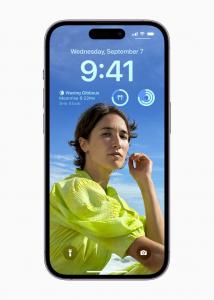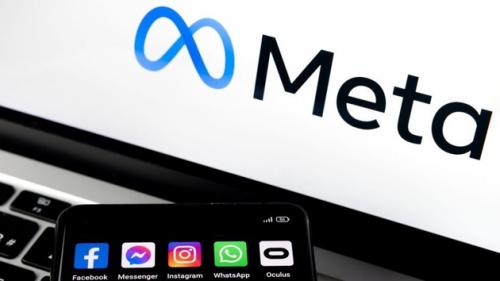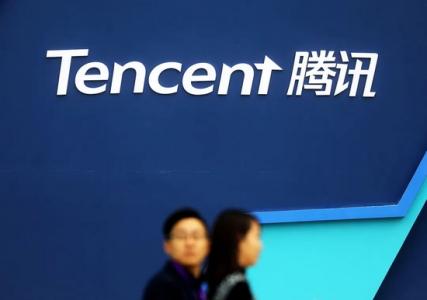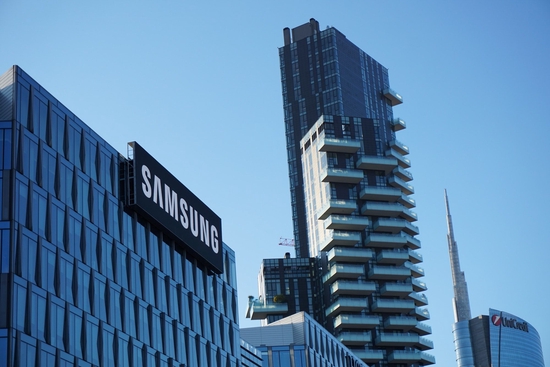your current location is:Home > Finance > depthHomedepth
Zuckerberg's Meta is weaker than we thought
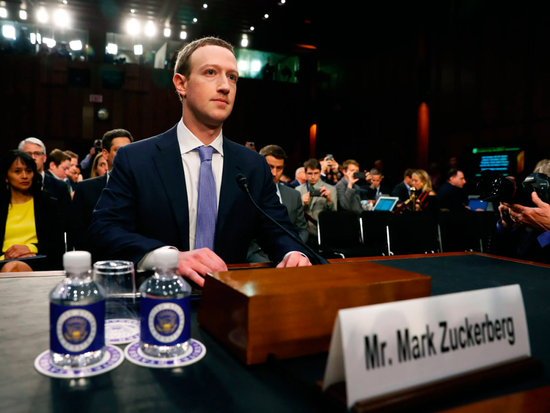
"Mr. Zuckerberg, have you copied your competitors?"
After less than a second of silence, Zuckerberg smacked his lips, and a slight emotional change could be seen on his "masked" face. Obviously, this had exposed his inner panic. Zuckerberg, who was being questioned by lawmakers in the U.S. Congress, apparently did not expect the lawmaker to suddenly ask such a question.
He was incoherent, but the denial was meaningless. The congressman had a record of his instructing his subordinates to copy the competing products. At this moment, he could only vaguely say that "it was someone else's head", trying to package himself as an image that had to bow to plagiarism in order to survive.
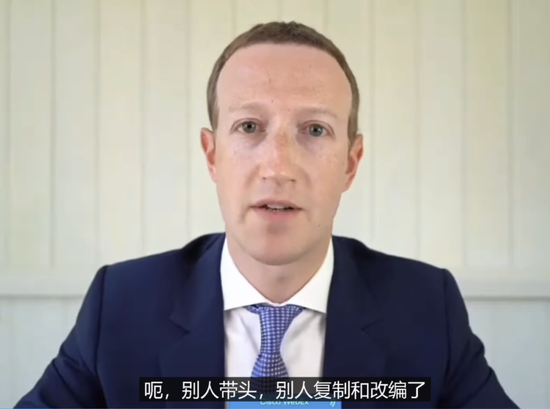 ▲Picture: Zuckerberg being questioned by U.S. congressmen
▲Picture: Zuckerberg being questioned by U.S. congressmenUnexpectedly, the congressman did not eat this set, and immediately interrupted Zuckerberg's speech and went straight to the topic: "I don't care about others, I just want to know how many competitors Facebook copied?" And Zuckerberg's speech The answer is: "I'm sorry I, uh, can't give me, uh, this number..."
Next, lawmakers stepped up their firepower, asking whether Zuckerberg had used copying and acquisitions to stifle competitors, citing the example of Instagram. This is of course to the point.
Going back to 10 years ago, in 2012, Facebook bought Instagram, which was in the limelight at the time, for $1 billion. Nine years later, Instagram ranks second in global downloads, with more than 2 billion monthly active users. According to Bloomberg Industry Research (BI) estimates, as early as 2018, Instagram’s valuation was as high as $100 billion, 100 times the acquisition price that year.
Returning to the questioning scene, the congressman has evidence that Zuckerberg threatened Instagram founder Kevin Systrom in order to reach the deal: Either you sell the company to me; or I make an identical product to crush you.
In fact, in the technology industry, it is not uncommon for giants such as Apple, Google, and Microsoft, known for their innovation, to copy their competitors. So why is it so fiercely chasing Facebook? Even now that Facebook has changed its name to Meta.
01
Facebook, which survives by plagiarism
In 2020, Instagram, which has been owned by Facebook for several years, launched a new product-Reels. This is a short video product, but it troubles the TikTok team very much, because it carries the functions of TikTok at the pixel level. At that time, TikTok had just reached the number one position in the global download list.
TikTok users feel the same way, with 87% of Gen Z TikTok users believing that Reels and TikTok are basically the same thing.
Faced with TikTok's mockery, Facebook doesn't care. Because this operation is too common for Facebook.
Clubhouse suddenly exploded in 2021, and Facebook launched Live Audio Rooms with the exact same function;
In 2020, Zoom exploded due to the epidemic, and Facebook launched Messenger Rooms. In order to benchmark Twitch and YouTube Gaming, Facebook Gaming was also launched;
In 2016, it launched Marketplace, which is a benchmark for Craigslist. Craigslist is similar to the combination of domestic 58.com, Meituan and other websites. Users can obtain various living information such as renting, recruiting, sales, and second-hand transactions on it;
In 2015, it launched On This Day, which is a benchmark for Timehop. This is a feature similar to Apple's photo album photo recall, which is used to display content that users posted today a few years ago;
…
Even Facebook itself is not Zuckerberg's original creation, but the brainchild of two of his Harvard alumni, who just implemented it with code. Seeing that their ideas were appropriated by others and made a lot of money, two Harvard alumni joined forces to sue Zuckerberg.
The lawsuit lasted for five years, and the two finally accepted the conditions of $20 million and $45 million worth of shares given by Zuckerberg, and the two sides reached an out-of-court settlement.
Zuckerberg really raised plagiarism to the height of corporate culture in an all-hands meeting in the summer of 2016.
Zuckerberg told everyone here: Don’t give up on providing users with the best products because of your arrogance, even if you directly copy competing products. Later, the speech was reduced to a slogan: Don't be too proud to copy.
Subsequently, American technology media reporters were invited to an office by Facebook executives to introduce a new product called Stories. This is a new form known as "burn after reading". After a user posts a Story on Instagram and Facebook, it can be displayed on the top of the friends' dynamic page for 24 hours, and then it will disappear.
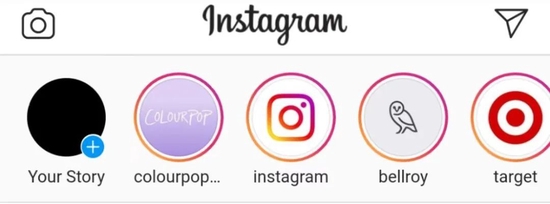
The reporters at the scene looked at each other, isn't this a 1:1 replica of the recently popular app Snapchat?
At the time, Instagram CEO Kevin Systrom saw the shadow of his own products from Snapchat. Both are explosive apps made by small teams; both are popular among teenagers; both were targeted by Zuckerberg in the early days; both need to answer the multiple-choice questions given by Zuckerberg: either you put The company sells it to me, or I make an identical product and crush you.
In the face of this product, which was established less than two years ago, Zuckerberg gave extremely attractive conditions: a price of $3 billion in cash. But Evan Spiegel, the self-regarding founder of Snapchat, didn't take Facebook seriously. He thinks his company will be valued well over $3 billion in the future, and it might even rival Facebook.
Later, Kevin told reporters in an interview: The glory of Stories is entirely due to Snapchat. The "complete credit" here means that Stories not only achieves pixel-level transfer in function, but even the name has not been changed. Zuckerberg seemed to challenge Evan from the air: This is what happens if you don't obey me.
In fact, the functions of short videos and burning after reading have now become standard on many social platforms. But if you want to talk about the fierceness of lethality, the great deterrent power, and the remarkable effect, you have to look at Facebook.
According to statistics, in Brazil, the first country to launch Reels, user activity has risen from 1% to 4.34% immediately. After launching in India, local Instagram downloads increased by 11.4%. Reels also brings huge traffic to big brands, and Nike's Reels videos have an average of 4.6 million views per video.
While Reels won't be able to shake TikTok's position any time soon, it's still a threat, at least to some extent. Foreign media counted the exposure rate (views/followers) of the cross-posted content of 6 brands including Sephora and Burger King, and found that the average exposure rate of brands on Reels reached 12%, while that on TikTok was only 5%.
Snapchat is even worse.
Facebook’s fork has not only successfully slowed the loss of its own young users, but it has also successfully slowed Snapchat’s user growth and is believed to have wiped out 70% of its market value.
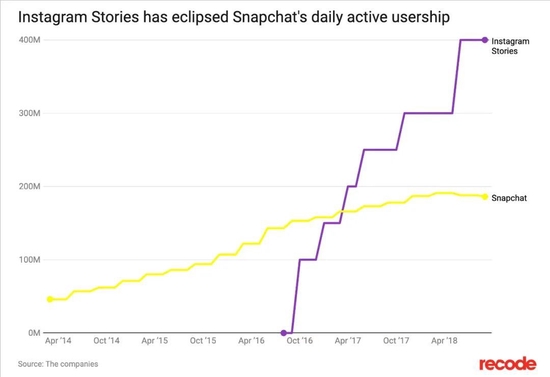 ▲ Picture: Instagram and Snapchat user impact picture
▲ Picture: Instagram and Snapchat user impact pictureThe reason why Facebook's plagiarism can become a hit as soon as it is launched is inseparable from its huge size.
Facebook has nearly 3 billion monthly active users, Instagram and WhatsApp have more than 2 billion monthly active users, Messenger has more than 1.3 billion monthly active users, and the total monthly active users after deduplication is 3.65 billion. what is this concept? The monthly active users of a single Messenger exceeds the total monthly active users of WeChat + QQ. But Facebook was established 6 years later than Tencent.
Why is Facebook user growth so fast?
02
Highlights and Controversy
Facebook is a typical company that has stepped on the dividend node of the times every step of the way.
It has been on the Fortune 500 list for 9 years since its establishment, but after 18 years, it has been at the bottom of its reputation, lost users, and its income has declined. This sentence can briefly summarize the growth history of FaceBook.
In 2012, when the bell of Facebook went public, Zuckerberg, 28, wrote this sentence: To a more open and connected world (to a more open and connected world). The following year, Facebook, which was founded less than 10 years ago and went public less than a year ago, successfully entered the 2013 Fortune 500 list.
Microsoft CEO Ballmer once said excitedly: "Google is old, the future is Facebook's!" What he saw was not only the company's rapid development momentum, but also the company's ambitions.
In 2004, Zuckerberg, who was only 20 years old, wanted to make a website that connects all Harvard teachers and students. At that time, the alumni records of American colleges and universities were mainly printed and distributed to teachers and students of the school through paper products, and the entrance of online access was private, and the whole process was cumbersome and inefficient. As a result, as soon as Zuckerberg's product was launched, more than 1,200 registered users poured in within 12 hours; in less than a month, most of the people at Harvard became Zuckerberg users.
Seeing such outstanding results, Zuckerberg immediately promoted the website to other colleges and universities in North America, and quickly attracted the attention of Peter Thiel, the godfather of Silicon Valley venture capital. As a result, Facebook, which was founded less than a year ago, received its first investment. And this $500,000 investment not only won a huge return for Thiel, but also became a popular investment myth in the future.
Thiel saw the right person, and Zuckerberg saw the right situation.
On January 9, 2007, Jobs had just introduced the world to the first iPhone. The next day, Zuckerberg launched m.facebook.com, a mobile-focused site, followed by an iPhone app in 2008. Facebook, which seized the early popularity of the mobile Internet, has exponentially increased its users in the following five years, and in 2012, its active users have exceeded 1 billion.
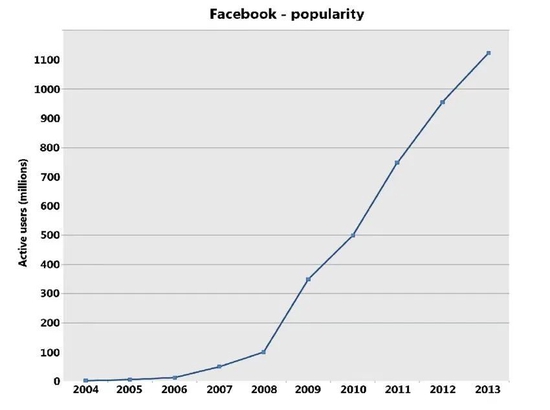
In 2014, Facebook celebrated its tenth anniversary.
Compared with ten years ago, the world Internet landscape has undergone tremendous changes. Especially with the improvement of telecommunication infrastructure in developing countries and the popularization of smart phones, it not only provides market space for Facebook to further expand, but also provides time for the rapid development of potential competing products.
WhatsApp, a popular instant messaging software in developing countries, had as many as 500 million monthly active users at that time, and the growth rate was ferocious, which became Zuckerberg's biggest concern. He believes that WhatsApp will be the most likely opponent to kill Facebook, and is willing to spend $19 billion to buy it in one of the largest technology acquisitions in history.
Today, WhatsApp is the fourth most downloaded platform after Facebook.
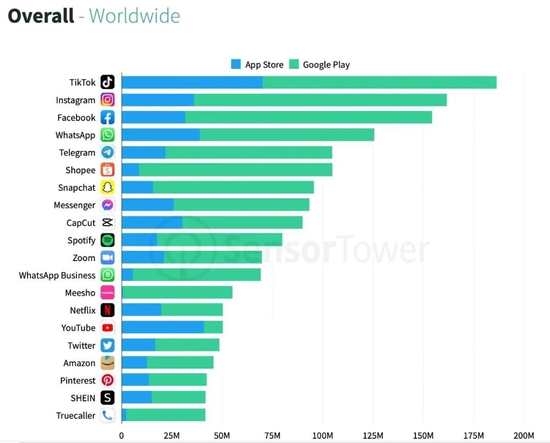 ▲Picture: TikTok ranks first in downloads
▲Picture: TikTok ranks first in downloadsIn addition, WhatsApp is changing from a simple instant messaging software to a direct communication channel between businesses and consumers, and users do not need to jump out of the current advertising interface, which sounds a bit similar to Want Want. Zuckerberg said that 1 million businesses are already using it, and merchants also need to pay Facebook a fee for this. The specific fees are as follows:
Within 250,000 messages (inclusive): $0.85/100 messages
Over 250,000 and less than 1 million: $0.83/100
Over 1 million and less than 3 million: $0.80/100
Over 3 million and less than 6 million: $0.73/100
Over 6 million and less than 10 million: $0.65/100
Parts over 10 million: $0.58/100
Advertising is Facebook's largest revenue pillar, accounting for 98% of the company's overall revenue. But there is a great hidden danger here, because the revenue from advertising is obtained by selling the privacy of users. In 2013, Zuckerberg made a surprising statement, saying that privacy no longer exists, but then changed his words under the pressure of public opinion. But Facebook has never stopped exploiting user privacy for profit.
In 2018, a scandal involving the personal data of 87 million users, unknowingly, was used for political advertising, helping Trump win the US presidential election and allowing Facebook to earn a lot of advertising revenue. The incident, also known as the "Facebook-Cambridge Analytica Data Scandal".
After the incident was revealed, Facebook apologized and paid a fine of 500,000 pounds, and Zuckerberg himself had to go to the US Congress for questioning, so the scene at the beginning of this article appeared.
I'm afraid that in this world, you'd be hard-pressed to find a company like Facebook that is disputed by almost everyone in every camp.
U.S. government departments accuse him of rigging elections; parents denounce him for teaching bad children and even causing teenage suicide; celebrities accuse trolls of too many platforms and inaction; the media exposes him for profiting from user privacy; Shocked by the rampant anti-intellectual remarks on the platform; the Chinese community asked him to give an explanation for the Tsinghua scholar who killed Chinese employees and fired the truth; Ethiopians blamed fake news on the platform for escalating violent conflicts...
While middle-aged users scolded Facebook for being shameless, young users felt that Facebook was too boring and voted directly with their feet.
In 2021, an article in the New York Times titled "Facebook is weaker than we thought" exploded the overseas circle of friends. In the eyes of author Kevin Ross, Facebook's weakness is the weakness of the old and the weak. In his view, although Facebook is not yet 20 years old, its users are already old.
According to eMarketer analysis, in the United States alone, the annual loss rate of Facebook's teen users is as high as 3%. It is estimated that between 2019 and 2025, 4.1 million young people aged 12 to 24 will leave the platform. In addition, Facebook's overall user growth rate has also tended to stagnate, starting in 2021, and the monthly user growth rate has been hovering around 1% year-on-year.
Misfortunes do not come singly. After the user growth peaked and word-of-mouth bottomed out, the company's revenue also declined for the first time. Meta reported quarterly revenue of $28.8 billion, down nearly 1 percent from a year earlier, according to the company's earnings report. Among them, Apple's further tightening of privacy policies is considered to be one of the important factors leading to the decline in Facebook's advertising revenue. Some even believe that Apple's new policy could cost Facebook about $10 billion in lost ad revenue.
Perhaps Facebook would have been expected to come this far, and Zuckerberg began to lay out other tracks early on. Thus, Meta appeared.
03
Meta, a deeper quagmire
2014 was a day worth going down in Facebook history.
Not just because it was Facebook's 10th anniversary, or its astronomical acquisition of WhatsApp, but because Zuckerberg bought a virtual reality start-up: Oculus VR for $2 billion. This acquisition kicked off a long-lost era of voyages in the technology world, and gave a shot of stimulants to multiple industries such as VR, AR, MR, blockchain, NFT, and cryptocurrencies.
Today, Oculus owns 90% of the VR headset market, and the Oculus Quest store will generate $1 billion for Zuckerberg in 2021 alone.
However, the change came too suddenly.
Zuckerberg suddenly announced in 2020 that Facebook's future plan is far more than social media, but to build a Metaverse. Not only that, in order to express the determination of All In Metaverse, it was renamed Meta externally; it continued to spend money internally, and the cost of Reality Labs VR department alone made Zuckerberg bear more than 10 billion US dollars in losses.
Metaverse, itself a created word, is a combination of Meta + universe, which first appeared in the science fiction novel "Avalanche". Science fiction movies such as "The Matrix" and "Ready Player One" draw on the concept of the metaverse.
For the vast majority of people, the term metaverse is neither visual nor difficult to understand. So Facebook had to spend a lot of time creating a video explaining the metaverse. In the video, Zuckerberg personally mounted the horse, a real person appeared on the scene, and then turned into a cartoon image, and even the real person and the cartoon image were in the same frame, talking about illusory concepts such as presence and digital people.
So, in the end, the message received by the public became: this is an app that functions like a 3D online game, but looks like a children's game. What’s more terrible is that nearly two years have passed, and Zuckerberg’s metaverse has not only seen no progress, but has been in frequent situations and even shows signs of regression.
First of all, Zuckerberg posted a 3D selfie of the metaverse, and everyone was asking the question: You all spent $10 billion, but you made it at the level of modeling 30 years ago, why?
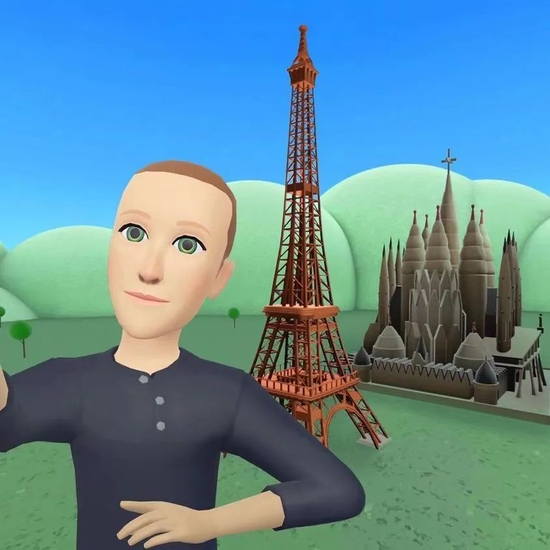
Some netizens directly ridiculed that Zuckerberg was born for the metaverse. The implication is that Zuckerberg is not like a living, normal human being. The craze for the ugliest selfie here hasn't dropped yet, and Facebook is making another oolong over there.
A large number of users went to Twitter, Reddit and other Facebook's competing websites to ask if Facebook was hacked? Or is my account hacked? What makes Zuckerberg even more heartbroken is that in the field of AI, which should be his own strength, Meta is also planted.
You must know that the Facebook Artificial Intelligence Research Institute was led by Yann LeCun, a Turing Award winner and one of the three deep learning giants; Jia Yangqing, founder of the famous machine learning framework Caffe and vice president of Alibaba technology, was the director of Facebook AI architecture; Facebook The hatched PyTorch is one of the most popular machine learning frameworks.
However, such a king blasted the start, and the final effect made people laugh and cry. Its own AI robot, BlenderBot 3, was exposed to abuse the CEO, calling Zuckerberg a pervert, untrustworthy, and exploiter. It can be seen that Zuckerberg is very eager to get rid of the negative image of himself and the company, but the result is more and more smeared. darker.
Some magazines in the United States organized the selection of the 2021 American Bastard of the Year, and Zuckerberg was elected without any suspense; and in the selection of the worst companies in 2021 organized by Yahoo Finance, Meta, of course, topped the list, with more than 50% of the votes exceeding the second.
It’s been almost a year since Zuckerberg changed the company’s name, and there are still many people who don’t understand the relationship between Meta and Facebook. Yahoo has to list both Facebook and Meta in the title in case anyone doesn’t know who Meta is. .
In fact, it doesn't matter whether Facebook changes its name or what it is. As long as Zuckerberg is at the helm, it will always be questioned and hostile by the public. Facebook has been successful in the ups and downs of the times, but Meta is too weak in comparison.
In 18 months, Facebook, now Meta, will be celebrating its 20th anniversary. But someone is already cursing it, and it will not live to its 24th year.
Previous:Putting the Web3 "Crash" in perspective: This is the best "Ice Age"
Next:Protecting minors online: California at the forefront of America again
related articles
Article Comments (0)
- This article has not received comments yet, hurry up and grab the first frame~






